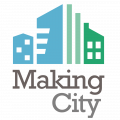–
17 September 2020
We are in a race to find solutions for the COVID-19 pandemic, the climate crisis, and sustainable development and energy for all. This crucial moment provides us an extraordinary opportunity to assess and RESET our priorities and actions for the built environment.
We must remind ourselves that all the needed elements to bring forth a brighter, more promising future are possible now: affordable clean energy and housing; climate adaptive architecture and planning; buildings and infrastructure as carbon sinks; forest and biodiversity recovery; walkable communities; and free access and close proximity to open space and recreational areas.The global teach-in, scheduled as full-day "how-to" events in different global regions, will bring together the most effective and regionally-specific architecture and planning strategies, building materials, construction methods, design tools, and practices and policies for creating livable and sustainable communities, and dramatically and rapidly reducing embodied/operational carbon emissions as we RESET our targets and actions to meet the Paris Agreement.Registration is now open for the CarbonPositive RESET! 1.5°C Global Teach-In. The global teach-in is free, scheduled as full-day “how-to” events in different global regions, and will showcase the most effective building materials, construction methods, design tools, architecture and planning strategies, practices and policies for dramatically and rapidly reducing the embodied and operational carbon emissions as we take this critical moment to RESET targets and actions to meet the Paris Agreement.
Join Architecture 2030 and experts from around the world this September to learn and accelerate the changes needed to make carbon reductions that can limit global warming to 1.5°C above pre-industrial temperatures. CarbonPositive RESET! will be segmented into morning general sessions and afternoon breakout sessions that will explore all aspects of the built environment - check out theagenda for more information.
Organised by: Architecture 2030

